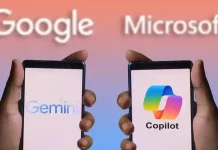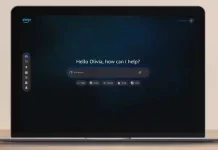Private Cloud Compute was one of the standout announcements during Apple’s unveiling of Apple Intelligence at WWDC 2024. The company introduced a secure cloud platform designed to handle AI tasks that exceed the processing power of iPhones, iPads, and Macs. Apple emphasized privacy as a core pillar — assuring that all data exchanged between the user and the Private Cloud Compute system remains invisible to everyone, including Apple itself. At the time, no other tech company had anything comparable, even as many were leading in generative AI capabilities.
Fast-forward to late November 2025, and Apple still trails its rivals in broader AI adoption. However, one major competitor has finally caught up on the privacy front. Google has now announced “Private AI Compute,” its own take on a secure cloud-based AI system that mirrors Apple’s approach to user data protection.
How Private AI Compute Works
Private AI Compute integrates Google’s powerful Gemini models with customized cloud hardware designed to encrypt all data exchanged with its servers, ensuring that it remains inaccessible to third parties — “not even Google,” as the company puts it. The new platform enables advanced AI processing that’s too demanding for smartphones like the Pixel to handle locally.
“AI is evolving to become even more helpful, personal, and proactive,” Google explained in a blog post. “It’s moving from fulfilling simple requests to anticipating user needs with customized suggestions or completing tasks at just the right moment.” This evolution requires computational muscle beyond what on-device processing can deliver, which is where Private AI Compute comes in.
Powering Pixel’s Next Generation of AI Features
According to Google, Private AI Compute operates on its custom Tensor Processing Units (TPUs) within secure Titanium Intelligence Enclaves (TIEs). This setup meets rigorous privacy standards and leverages the same in-house infrastructure that runs Google’s core services like Gmail and Search.
In essence, Private AI Compute functions as a secure personal cloud environment on Google’s servers — a place where complex AI tasks can run safely and privately when local hardware isn’t enough.
So far, Google has confirmed only a few features that will rely on Private AI Compute. One is Magic Cue, a Pixel 10 feature that uses AI to surface relevant information from apps such as Messages, Gmail, Maps, and Calendar right when users need it. Given the sensitivity of this data, a system emphasizing privacy is crucial. Another use case is the Pixel Recorder app, which will leverage Private AI Compute to produce smarter, multilingual summaries of transcripts.
Looking Ahead
Google framed this announcement as the start of a broader rollout. More features using Private AI Compute are expected in the coming months, particularly those involving personal data and context-sensitive AI interactions. While current availability appears to focus on Pixel devices, it’s reasonable to anticipate that Private AI Compute could expand across the broader Android ecosystem in the near future.





